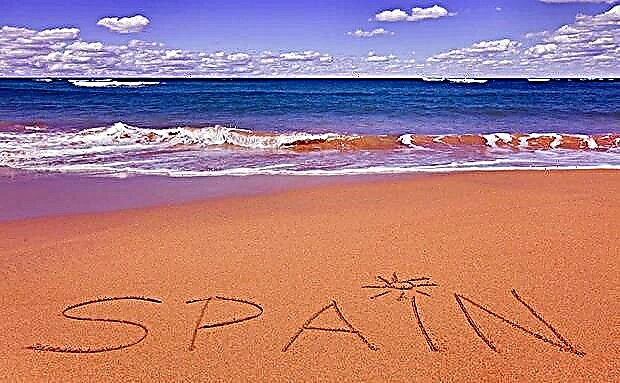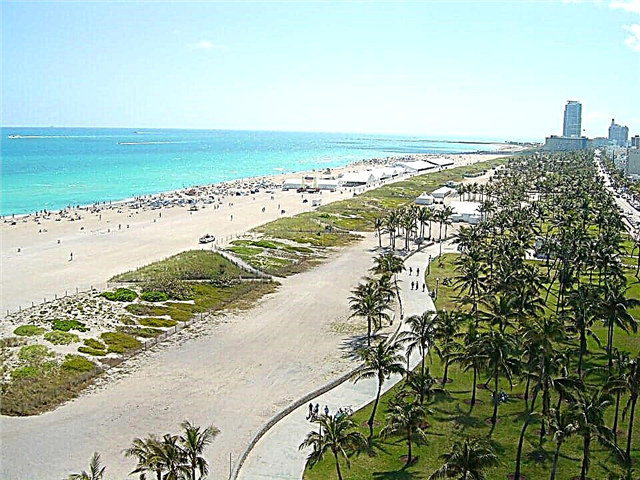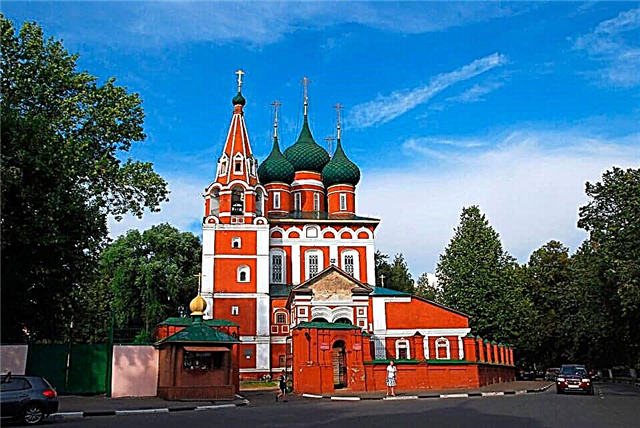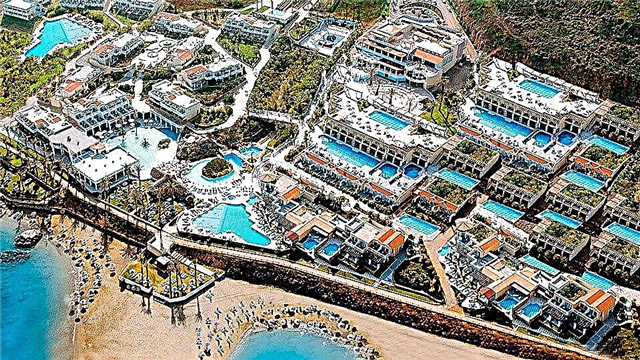The homeland of the writer Cervantes, the artist Picasso, the filmmaker Almodovar, the singers Domingo, Iglesias and other celebrities attracts tens of thousands of Russians. Wonderful monuments of architecture, wonderful holidays on the Mediterranean and Atlantic coasts have made Spain a favorite tourist destination, a place of temporary work, celebrations of anniversaries and weddings. The visa regime that exists for all visitors to the country strictly provides for entry only with visas. This article introduces in detail the main intricacies of self-registration of visas to Spain in 2017.
Do I need a visa to Spain

Obtaining a visa remains relevant for residents of Russia, therefore, when planning a trip to Spain, you need to start with the registration of the Spanish Schengen. To do this as quickly as possible, without bureaucratic delays and unnecessary hassle, visa centers have been opened in many regional and regional centers, Moscow and St. Petersburg. In addition, you can obtain an entry permit at the Spanish Consulates in Moscow and St. Petersburg.
From 14.09. In 2015, all Schengen visa applicants must leave their biometric data: fingerprints (fingerprints) and go through the special photo procedure at the visa center. Children under 12 years of age are exempted from fingerprinting. For those who cannot visit the visa center directly, there is a mobile biometrics service: you need to go to the website of the Spanish Visa Application Center and submit an application.
When a Spanish visa is not needed

In the event that you already have a visa to enter any European state of the Schengen group, you can not apply for a Spanish visa, but plan a visit to 2 countries in turn. For example, having a French visa for 2 weeks, you can dedicate one of them to Spain and, as they say, “kill two birds with one stone,” and even such as visiting the most beautiful countries of the Mediterranean.
Types of visas for travel to Spain
Each of the Russians who go to Spain pursues their own goals, some go to see the sights, others - to splash in the sea-ocean, others hope to find a good job, etc. Depending on the purpose and timing of visiting the country, visas are divided into the following groups.
Short stay visa category C

It is issued to a person traveling for a period of no more than 90 days in a 180-day period and allows him to safely travel around the country, visit its residents, be a participant in various meetings, training seminars, conferences, congresses, presentations and other cultural political events. It can be single, double or multiple (1,2, many times you can enter the Spanish state for the period specified in the visa). It can be obtained in 2017 at the nearest visa center. Visa fee - 4556 rubles. + 1499 RUB service fee.

Tourist visa
A tourist visa allows you to travel to different places in Spain, visit any city, use any means of transportation. + 1499 RUB service fee.
Transit categories A, B

These visas allow only travel through the territory of Spain: transfer at airports, at railway stations without the right to travel to other objects of the country. These requirements are especially strict for Russians now, therefore, knowing about travel through Spain to other states that are not part of the Schengen Agreement, you must definitely take care of obtaining such a transit visa. If the transfer is carried out to a Schengen country, you can limit yourself to the visa stamp of this state. Visa fee - 2260 rubles. + 998 rub. –Service fee.
Category D - long-term visas
For those who go to Spain for a long time: to study, for temporary residence, to register a marriage with Spanish citizens, investors, owners of Spanish housing, participants in a business project - you need a National visa D. It allows its holders to stay in Spain for up to 1 year. A national visa must be issued at the Spanish embassy or consulate in Moscow. Such a visa is divided into 3 subspecies: stay in Spain without the right to work; with the right to work; study visa, which provides for the right to study a profession and scientific activity with research. for arr. documents.
Visa for those traveling to work

Work visa category D is intended for Russian citizens who have found or already have a job in Spain. Such a visa cannot be issued independently at the nearest visa center, where you can only submit an application for receipt. Registration is carried out only at the Spanish Embassy or the Consulate General of Spain in Russia with the direct participation of the Spanish employer (through the provision of supporting documents for the provision of work). Visa fee - 4556 rubles, urgent registration (less than 5 days, 24 hours) - 5316 rubles + 1499 rubles.
Documents and requirements for them

Anyone wishing to become holders of a Spanish visa must submit the following documents:
Application form (you can fill it online in English by downloading a sample; print it out and bring it to the visa center with your signature on paper). Not accepted with corrections, you need to fill in clearly and accurately. For national visa D - in Spanish.
The applicant's passport (original and photocopies of all pages), the minimum period of which expires 3 full months after return: at least 2 blank pages in it.
2 frontal photographs (size 3.5 x 4.5 cm), taken in the last six months before the trip; no frame (head size - not less than 70% of the area, on a white background) with an open face and ears, no ornaments.
Old passports (if any) with copies of all pages.
Russian passport (copies of the entire document in full).

Air tickets or other (copies) with a specific date of return or electronic equivalent.
A document confirming the reservation of places in a hotel, hotel or other accommodation for a period that covers the duration of the trip.
Medical insurance (original and copy of the policy) with an amount of coverage from 30 thousand euros in the entire Schengen area, valid for 2 weeks after returning. There is an option of insurance that provides only the length of stay in Spain (0.5-1 euros per day).
Documents guaranteeing the financial support of the entire trip: certificate-statement from a bank account, credit card; a certificate of the availability of the euro currency or a sponsorship letter with a certificate of the sponsor's salary; a statement from his account for the last 6 months or a receipt for the purchase of euros. The total amount of funding must meet the calculation requirements - 64.33 euros for each participant in the trip per day.

Documents characterizing social status: certificate from the place of work at the enterprise, in the company, in private business with all the necessary details: full name of the organization issuing the certificate; actual address, telephone, fax, website. The certificate must contain information about the position, work experience, the amount of the applicant's salary. From ind. entrepreneurs and businessmen require a TIN and a certificate of company registration.
These documents can be omitted if there is a sponsorship letter or a stable bank account.
Pensioners provide a copy of the pension certificate and a sponsorship letter, students - a copy of the student. a ticket, a certificate from the place of study (if they combine study with work - a certificate from the place of work) and a sponsorship certificate.

11 Driver's license, vehicle registration certificate and international auto insurance policy, if the trip is planned by car.
List of additional documents for a Spanish visa for those traveling by invitation
A written invitation registered at the police station at the place of residence by the person inviting to him. In it, indicate the dates of the trip, the address of the location of the invitees.
Documentary confirmation of the legality of residence in Spain of the inviting party: residence permit, visa category D, passport (copies). If a relative invites, you must provide, in addition to the above, a document confirming the relationship.

An invitation, certified by the signature of the head of an organization, a legal entity (if such are the messengers).
Document confirming the purpose of the trip: official business relations, business trip, business issues.
Property owners in Spain, upon obtaining a visa, must additionally submit:
- purchase agreement, donation;
- an extract from the special register Nota Simple.
List of additional documents for visa D

Certificate on the form of the Hague Apostille (special form) confirming the absence of a criminal record, certified by the Spanish Consulate General located in Moscow.
Certificate of medical examination of the applicant, certified in the same place (Civil Code of Spain).
A contract confirming a work permit, residence, certified by the stamp of the Oficina de Extranjeria.
Permitting document for the right to work.
List of add. documents for a study visa

Going to study for up to 6 months, when applying for a visa, you must submit:
- written confirmation of the purpose of the trip, signed by officials
- the thematic program of the upcoming training
- payment receipt for the course
Visa documents for children

In addition to all the generally accepted documents for a visa, when traveling with children, you must submit the following documents:
- Child's birth certificate (copy);
- Notarized permission in Russian, with signatures of both parents and copies of their passports, if the child is traveling with someone else; father's signature (if traveling with mother); with the signature of the mother (if traveling with the father).
How to apply for a visa yourself

Now in Russia, in many regional, regional and republican capitals (28 cities), visa centers are open, which greatly facilitates the issuance of a Spanish visa for residents of various regions of the country, when they do not need to go to the Consulate General in Moscow or St. Petersburg.
Obtaining a visa at the visa center on your own

If you follow the following algorithm of actions, then obtaining the coveted visa will not seem difficult:
- Determine exactly the category of visa (short-term, tourist, etc.).
- Register on the website of the nearest visa center, leaving your coordinates (e-mail, phone) in order to receive a notification with a personal number and date when you need to arrive at the visa center for an appointment.
- During this time, collect all the necessary documents (see the list above).
- Arrive at the appointed time at the visitor center, undergo fingerprinting (mandatory for everyone over 12 years old).
- Pay the service fee, submit the documents along with the receipt of payment.

If the visa center is located nearby, in your city, you can immediately go there with ready-made documents and hand them over. Get a coupon, by the number of which you can track the situation with the documents (they are considered within 8-10 days) and arrive at the appointed time for a visa.
Obtaining a visa at the Consulates
In addition to visa centers, residents of both capitals and adjacent regions can apply for a visa to Spain at the Consulates General of Moscow and St. Petersburg. National category D is issued only through the Consulates or the Embassy of Spain (Moscow), regardless of the applicant's place of residence.

The Consulate of St. Petersburg has a mobile biometrics service that anyone can use. To do this, you need to contact the employees of the institution through the consulate's website, discuss the exact date, payment terms and other conventions. Specialists come home, help to draw up an application, check the collected documents, produce biometrics, take a signature sample and register the application. (Optimal for residents of the districts closest to St. Petersburg).
Visa cost
The cost of a visa includes payment of visa and service fees - 2260 + 998 rubles. You have to pay extra for the urgency of registration (see above in the section "Types of visas").

Persons with dual citizenship (Spain and Russia), children under 6 years old are exempted from visa fees; spouse (s) of a Spaniard / Spanish woman; scientists (scientific goals); disabled people of any group and 1 accompanying person (citizen of the Russian Federation) of a disabled person of the 1st group; members of official government delegations, participants in international cultural events, close relatives of Russian citizens who have a residence permit in Spain.
The service fee is not paid: children under 6 years old; disabled persons of the 1st group and 1 accompanying person.
Duration of visa validity
According to the terms of the Schengen Agreement, the validity periods of visas are the same for all Schengen countries. Category C visas are valid in Spain for up to 6 months (90 out of 180 days of permitted stay); national D visas - up to 1 year.

In some cases, there may be deviations from generally accepted standards, when type D visa documents may have other validity periods, for example, up to 5 years (marriage). There are options for extending such visas that do not require a new visa. Not so long ago, the legal concept of "blue card" appeared in the Spanish visa legislation, which allows the holders of the latter to move around without restrictions in European states in search of work.
How long does it take to get a visa

On average, obtaining a visa through visa regional centers, subject to correct paperwork, takes 10 days. First, the submitted documents are checked in the center, then the papers are sent to the Consulates General of St. Petersburg and Moscow. The fewer complaints about the package of documents, the less time it will take for registration.
You can get a visa at the Consulates of Spain in a short time: 2-3 days, without additional. payment for urgency.
When failure is possible

According to existing statistics, the refusal of a Spanish visa is much less common than to other Schengen countries. But here, too, there are cases when applicants are denied entry permits:
- revealed facts of violation of the immigration regime by the applicant earlier, in previous trips;
- legal contradictions with visa legislation, found in documents or other circumstances.

It is important to know that the money paid for the cost of a Schengen visa will not be refunded in case of refusal. For each new attempt to obtain a visa to Spain, you will have to pay again. Therefore, you need to be very careful when filling out an application form and preparing documents ..
The Spanish Consulate in Moscow is located at Stremyanny per., N 31/1. Reception: from 08.00 to 15.00. Phones: +7 (495) 234-22-97, +7 (495) 958-23-89.
Consulate General in St. Petersburg - st. Furshtatskaya, 9, tel. (812) 644-64-70, fax (812) 644-65-77.










